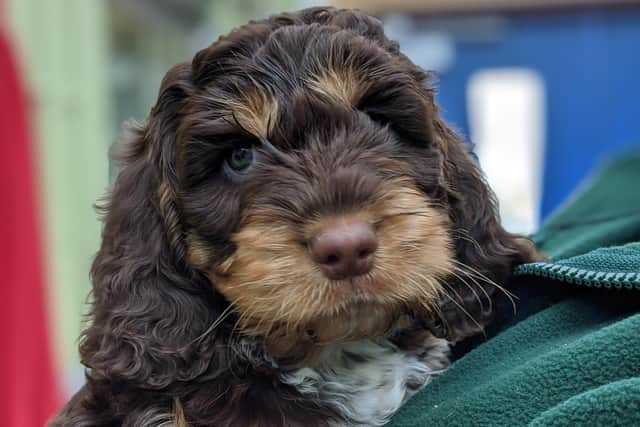The reality of puppyhood: An expert guide to common queries


Getting a puppy is incredibly rewarding, but anyone who has gone through puppy parenthood will understand how challenging it can be. Since joining the team at Wood Green more than 30 years ago, I’ve worked with thousands of dogs and their owners. Although dogs teach me something new most days, there are a number of common queries I get asked when it comes to raising puppies:
What should I do about puppy mouthing and biting?
Puppies have pin-sharp teeth and explore the world through their mouth. Unlike your puppy’s littermates, who will have enjoyed wrestling together, we don’t have thick fur and it hurts! Mouthing is very normal and puppies do grow out of it – just keep offering them toys to redirect their mouths onto more appropriate playthings, and reward them when they get it right. Keep toys around the house, so you’re never too far away from one to grab.


If distraction isn’t working, remove yourself from the situation. Leave the room or pop them in their puppy play pen just for a minute or two, which teaches them that you won’t play when they’re behaving that way. For the ankle biters who grab slippers or tug on trouser legs, we advise owners to wear house wellies – really! Your puppy won’t be able to hurt you, so stand perfectly still and they’ll soon realise that it’s boring. There’s no point in punishing the behaviour as they’re just trying to play and they don’t understand.
How can I stop destructive behaviour?
Puppies chew. It’s what they do! Prevention is always better than cure, so you should tidy and puppy-proof your home. If you have children, ask them to crawl around to see the house from your puppy’s perspective and move things they might get hold of.
Keep anything valuable out of reach, at least temporarily during the training period, and be careful of potentially harmful things like grapes or chocolate on the coffee table (still within puppy reach).
I’m not a naturally tidy person, so a trick I use is to ‘hidey up’ rather than tidy up – keep a lidded plastic box in every room and pop any loose items in there.
During times when you can’t actively supervise your puppy, a simple solution is to keep them inside a puppy play pen with an open crate, water, some toys and enrichment feeders to keep them busy – like Kongs, LickiMats or homemade alternatives like stuffed toilet roll tubes. In the pen, they can still see you but they’re safe and can’t come into any harm (or do any harm). Rotate the toys to keep their novelty value, as puppies can get bored very quickly.
If you have a puppy, or are thinking about getting one, please come along to our free monthly ‘Reality of puppyhood’ event for even more tips and tricks from our expert team. Find out more at https://woodgreen.org.uk/events/